LCAMP organised its first annual conference in Germany
17/05/2024
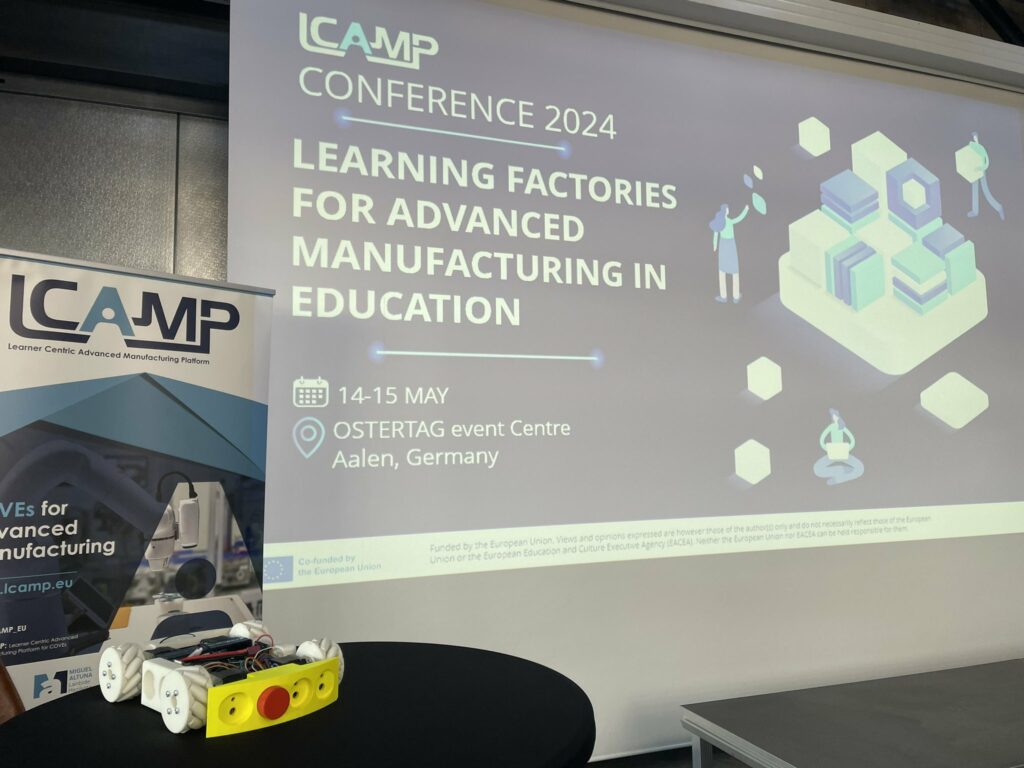
The first LCAMP Conference 2024 – Learning Factories for Advanced Manufacturing in Education took place on 14-15 May 2024 in Aalen, Germany. The event gathered more than 140 participants coming from 14 countries in Europe and beyond (US, Canada and Latin America).
Participants explored the practical implementation of Learning Factories in Vocational Education and Training (VET) and High-VET education, discussed the introduction of industry 4.0 technologies in education, showcased real-world examples from around the globe, provided opportunities to join the future LCAMP alliance for fostering international collaboration, facilitated engaging visits to two cutting-edge manufacturing companies, and offered networking opportunities for schools interested in technology and advanced manufacturing education.
On the opening day, participants benefited from keynote sessions addressing key trends and challenges in advanced manufacturing education, panel discussions involving experts from academia and industry, and three breakout sessions. Ms Alicia Gaban (Communications Manager at EARLALL and LCAMP Dissemination Officer) presented the Conference.
Opening sessions
Mr Rikardo Lamadrid, Director General of Technology and Advanced Learning, Vice Ministry of VET, Department of Education, Basque Government, opened on behalf of the LCAMP-Learner Centric Advanced Manufacturing Platform for Centres of Vocational Excellence (CoVEs) consortium the LCAMP Conference 2024. Mr Lamadrid stressed the relevance of this project which supports local and regional VET Centers to connect with European and International peers. He added that participants were making history by attending the first edition of the LCAMP conference: “a first step that will all of our pinnacle of international cooperation in advanced manufacturing in the field of education.” He was followed by Prof. Dr.-Ing. Rainer Przywara, President of the DHBW Heidenheim Baden-Wuerttemberg, welcomed the participants on behalf of the hosting organisation the DHBW Heidenheim. Dr Przywara introduced to the audience the German VET Dual system and exposed how this system has deep roots which is benefiting the development of the region.
The Conference took place in the context of the LCAMP which was introduced by Mr Jon Labaka, Executive Director of TKNIKA and LCAMP Coordinator. Mr Labaka explained that the project is gathering more than 20 full partners (VET providers Industrial Associations and Local and Regional Authorities) coming from Europe, Canada and Turkey. Mr Labaka presented the project’s activities and target groups, while inviting the participants to cooperate and work together, “as together even if we go slow we can go farther” he added.
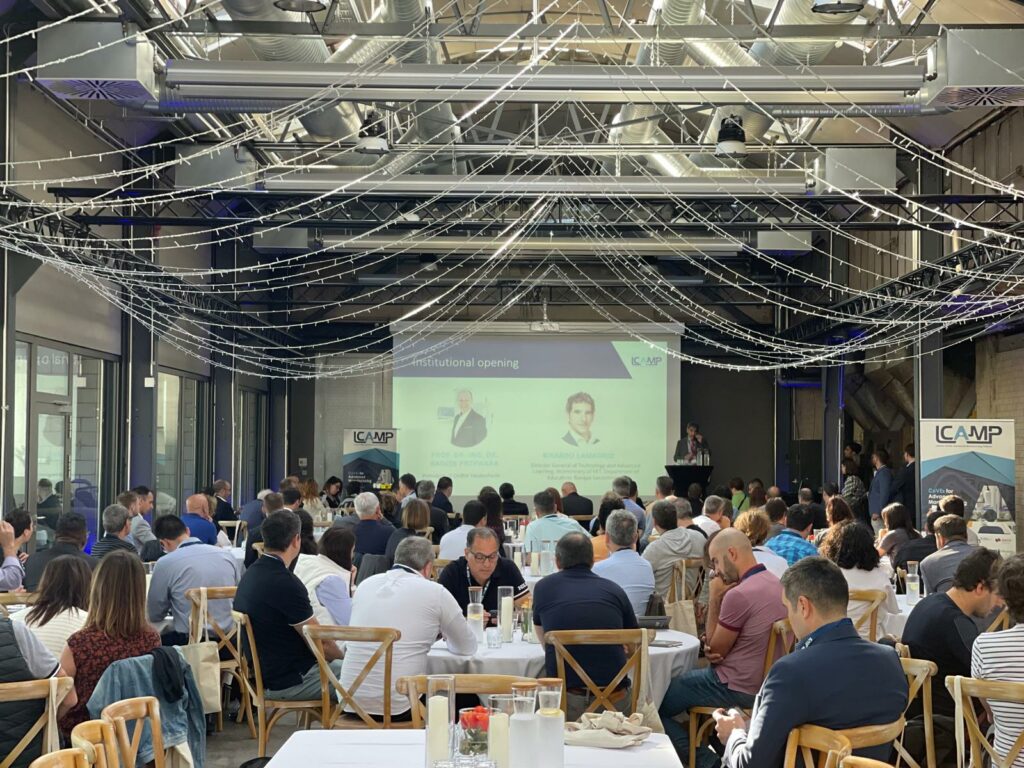
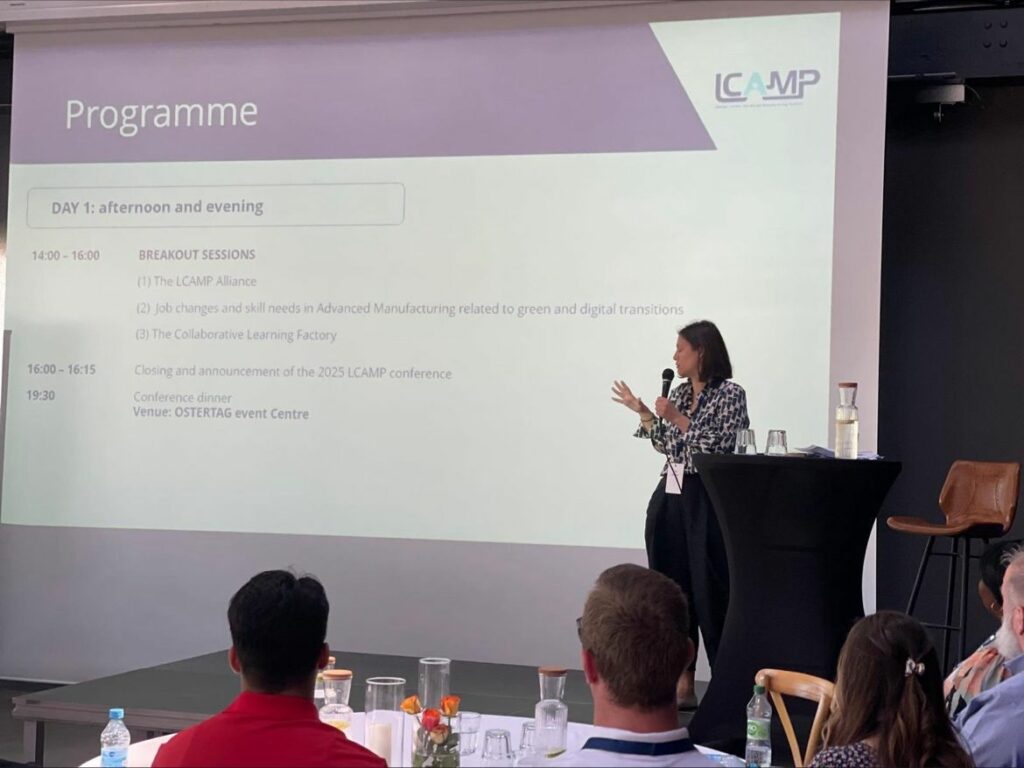
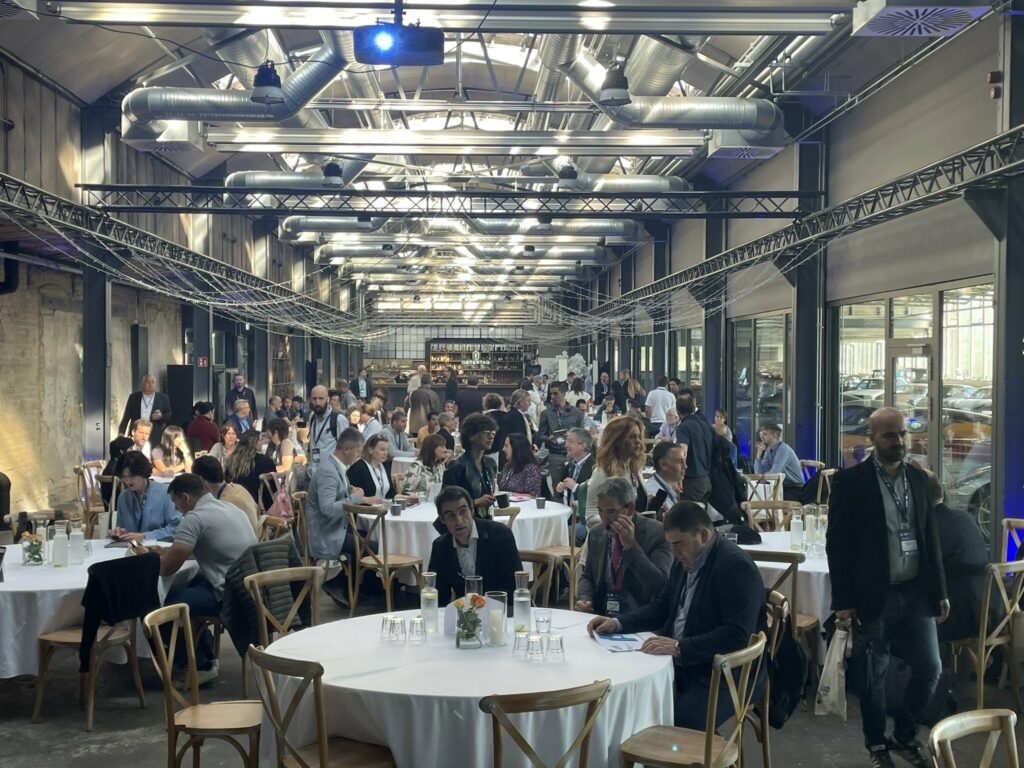
Learning Factories: from Germany to LCAMP concept and Canada perspectives
Experts from Germany, Basque Country-Spain and Canada shared their approaches to the Learning Factories, the main subject of the conference.
The first speaker, Mr Barthruff, from the Ministry of Culture, Youth and Sports in Baden-Württemberg, introduced the connection between the German VET and Industry 4.0, and how they are Mapping Didactical Approaches for Learning Factories In Baden-Württemberg. In the region, there are 253 public vocational schools and 111 in Mechanical and Engineering, within those there are 48 learning factories in the present school year. Mr Barthruff then added that thanks to the Learning Factories “VET schools are more involved in commercial professions, they increase the regional learning site and further develop teacher training”. Participants benefited from a practical example of what Festo Didactic SE is doing in In Baden-Württemberg region. Mr Goran Miladinov spoke about the different connections between Festo Didactic SE and training VET learners. He then introduced a VDMA Toolbox to analyse how Digitalization & Industry 4.0 can be implemented in Small & Medium Sized Enterprises (SME’s).
LCAMP experts, Mr Unai Ziarsolo (LCAMP Scientific Coordinator) and Prof. Dr.-Ing. Klaus Dieter Rupp (DHBW Heidenheim) introduced the LCAMP approach to the Learning Factories. The innovative aspect that LCAMP is adding to the well-known Learning Factories approach, is the collaboration perspective between different VET Centers which are separate geographically. Thanks to the collaboration, learners will learn new methodologies, and cooperation and will benefit from mobility between the future Learning Factories that will be connected. In addition, they will be improving their knowledge through access to micro-credentials. LCAMP will facilitate a catalogue of these training courses through its platform.
LCAMP is not only working with European partners but it is going across the sea by cooperating with Canadian colleague Camosun (Victoria). Dr Richard Gale and Mr Imtehaze Heerah presented the Canadian model of Learning Factories. This is an innovative approach for Vocational Colleagues as until the moment this was developed mainly at the University level.
Company perspectives
Cooperation with companies is key to building a strong advanced manufacturing alliance in the education sector. That’s why was important to bring forward companies’ perspectives. Mr Marc Froeschl, FORCAM ENISCO GmbH, Germany, introduced the Connectivity for learning factories, then discussed Digital Twins for Learning Factories with Mr Mikel Ayani, Simumatik, Sweden, to finalise by understanding better with Mr Dimitri Mestre, ARKITE Belgium, the guidance operator system Arkite. Companies had an exhibition during the conference so participants could discuss the benefits of the different products and services that they are offering.
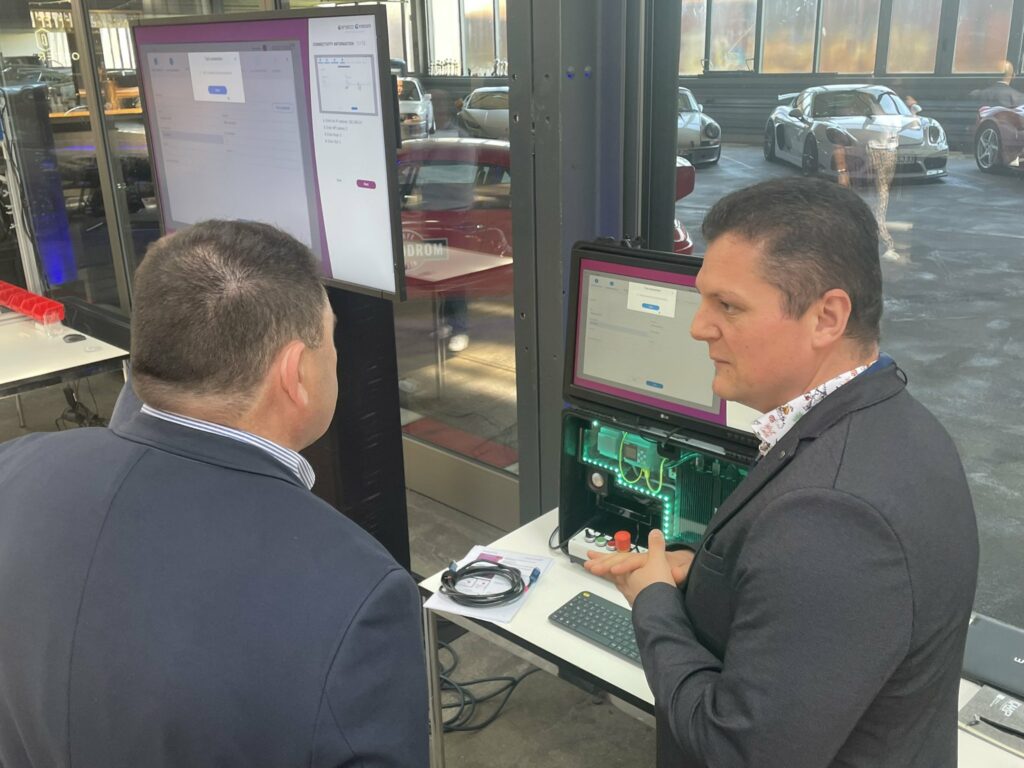
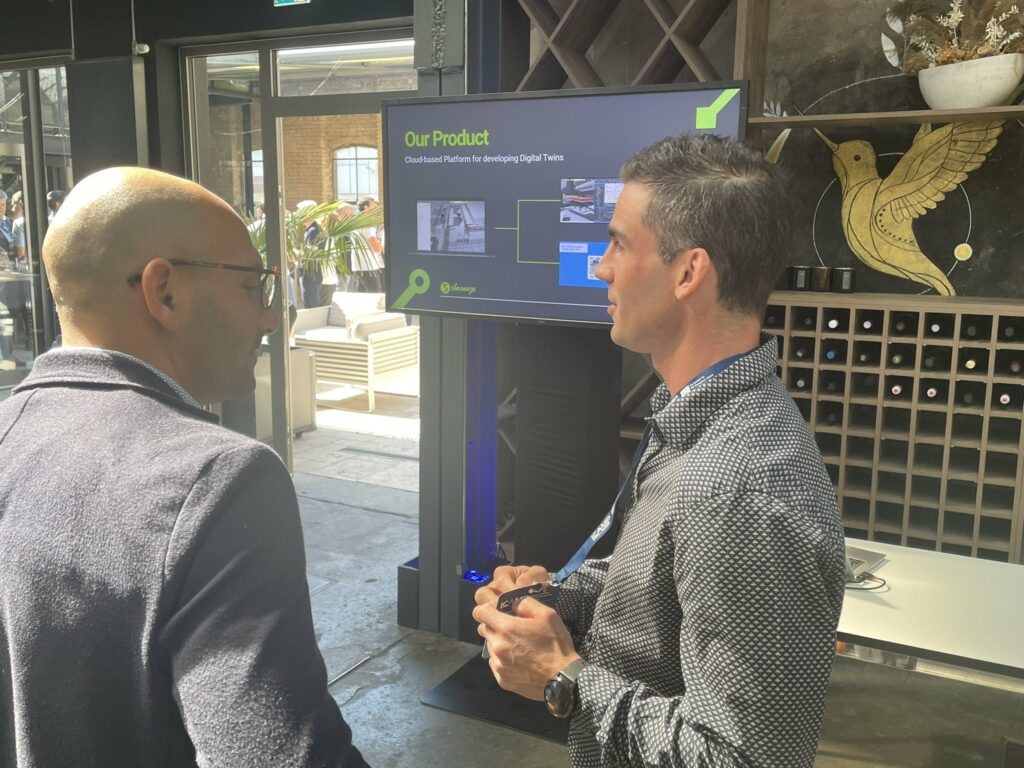
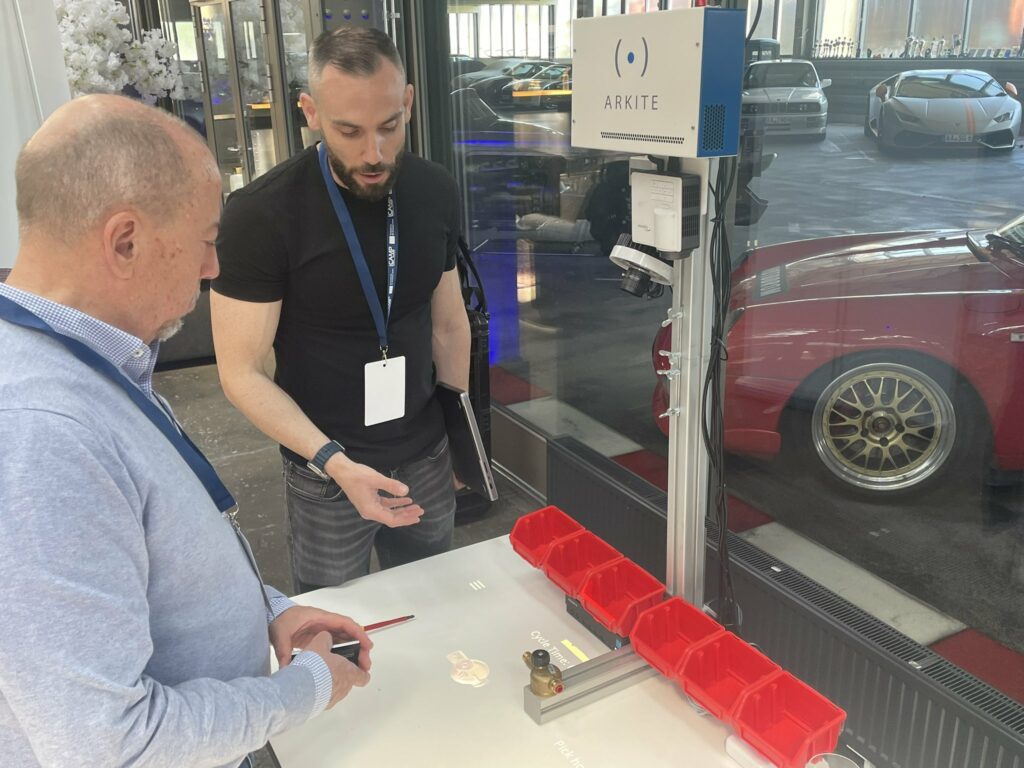
Breakout sessions: exploring three key activities of the LCAMP project
The afternoon session was dedicated to exploring three key activities of the LCAMP project and so to involve in the project the conference participants. The first breakout session was focused on the LCAMP Alliance. Participants expressed their interest in becoming members and that the Alliance would help them with their project ideas and finding mobility opportunities for their learners. In the second breakout session, the Skills and Jobs Observatory presented their first results on the impact of selected jobs of the twin transition. In the Collaborative Learning Factories participants had the opportunity to experience in practice what learners will have to do when they are involved in such learning environments.
The first day of the Conference was closed with the announcement of the 2025 edition which will take place in Sweden. If you want further information please write us to info@lcamp.eu
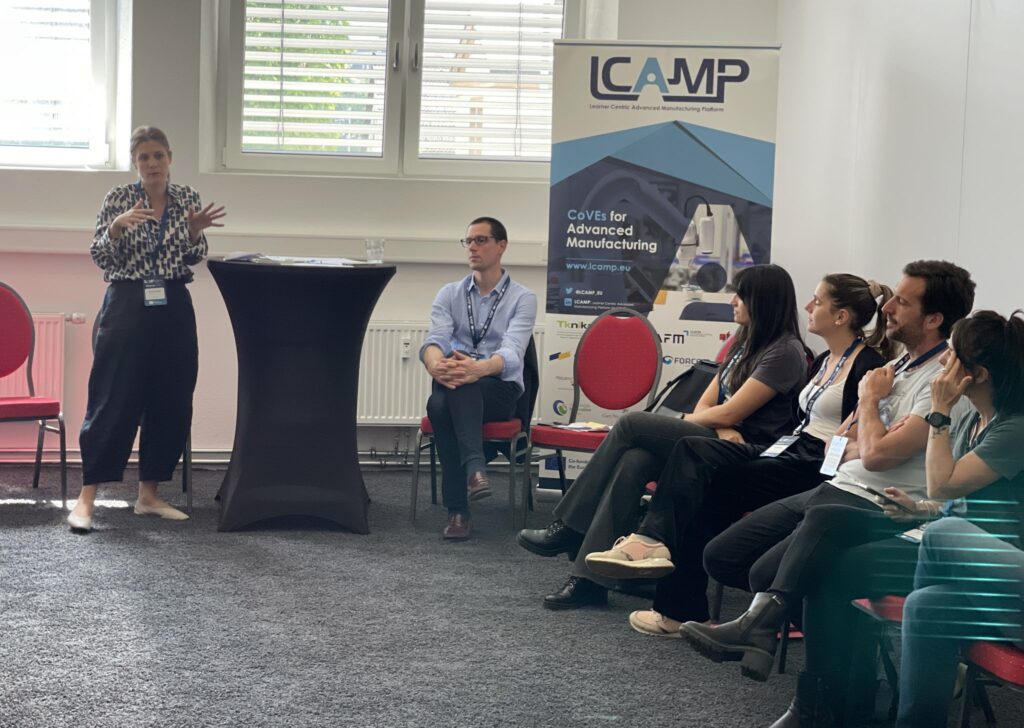
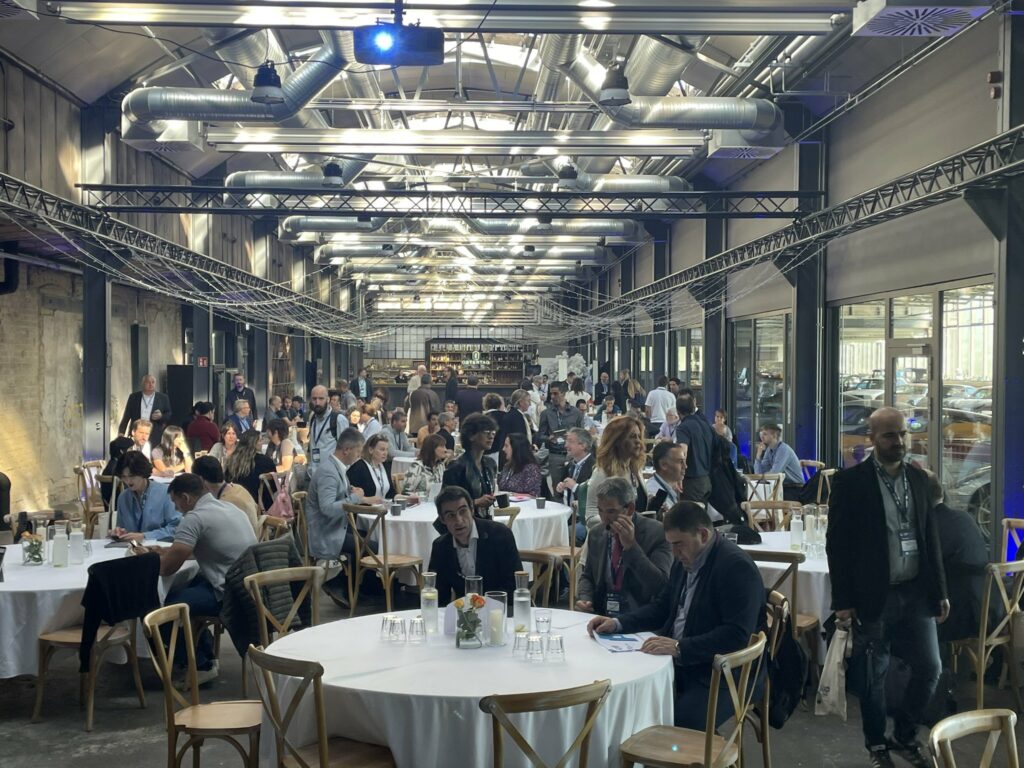
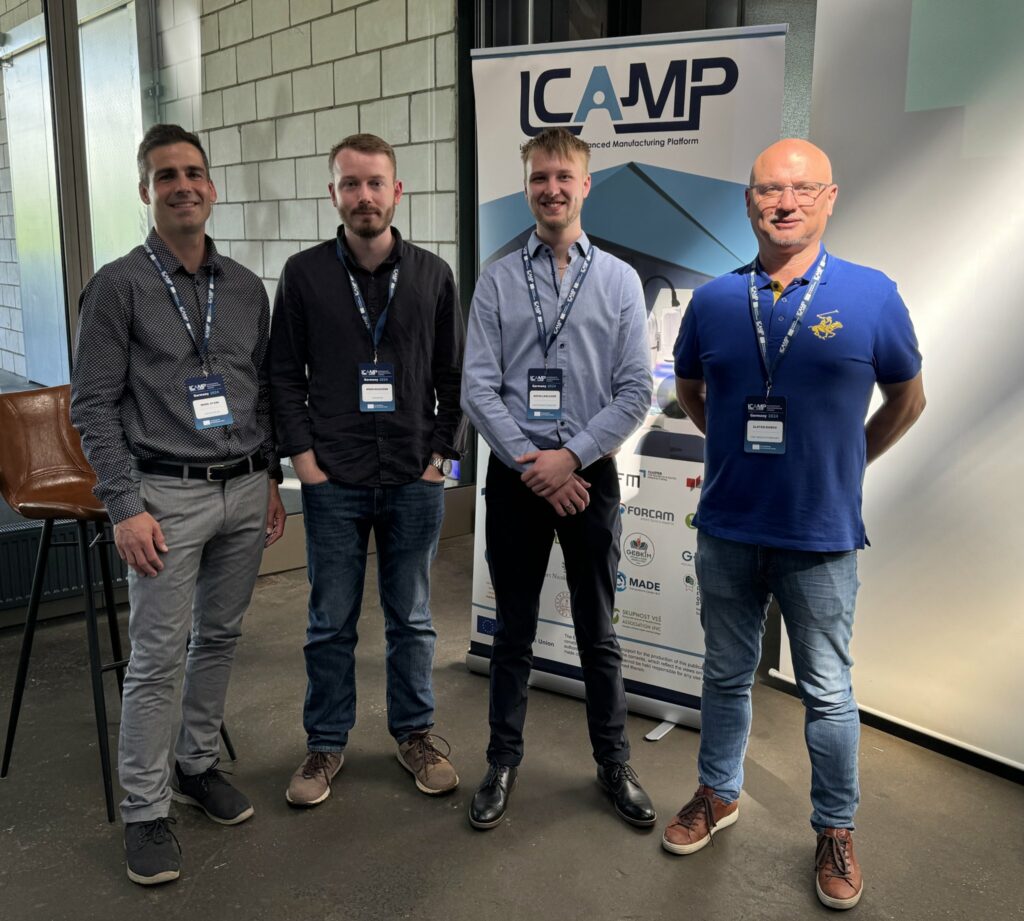
From theory to practice
The conference was followed by visits to cutting-edge manufacturing companies BOSCH REXROTH and FESTO in the Baden Württemberg region.
Resources
Presentations are available here
[ssba-buttons]

